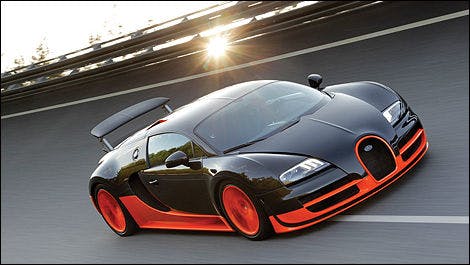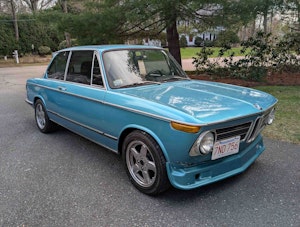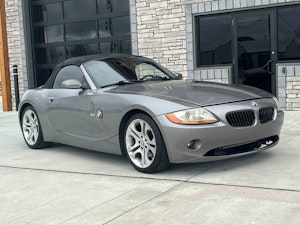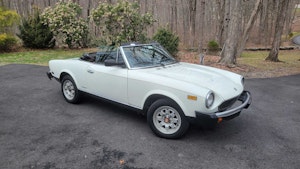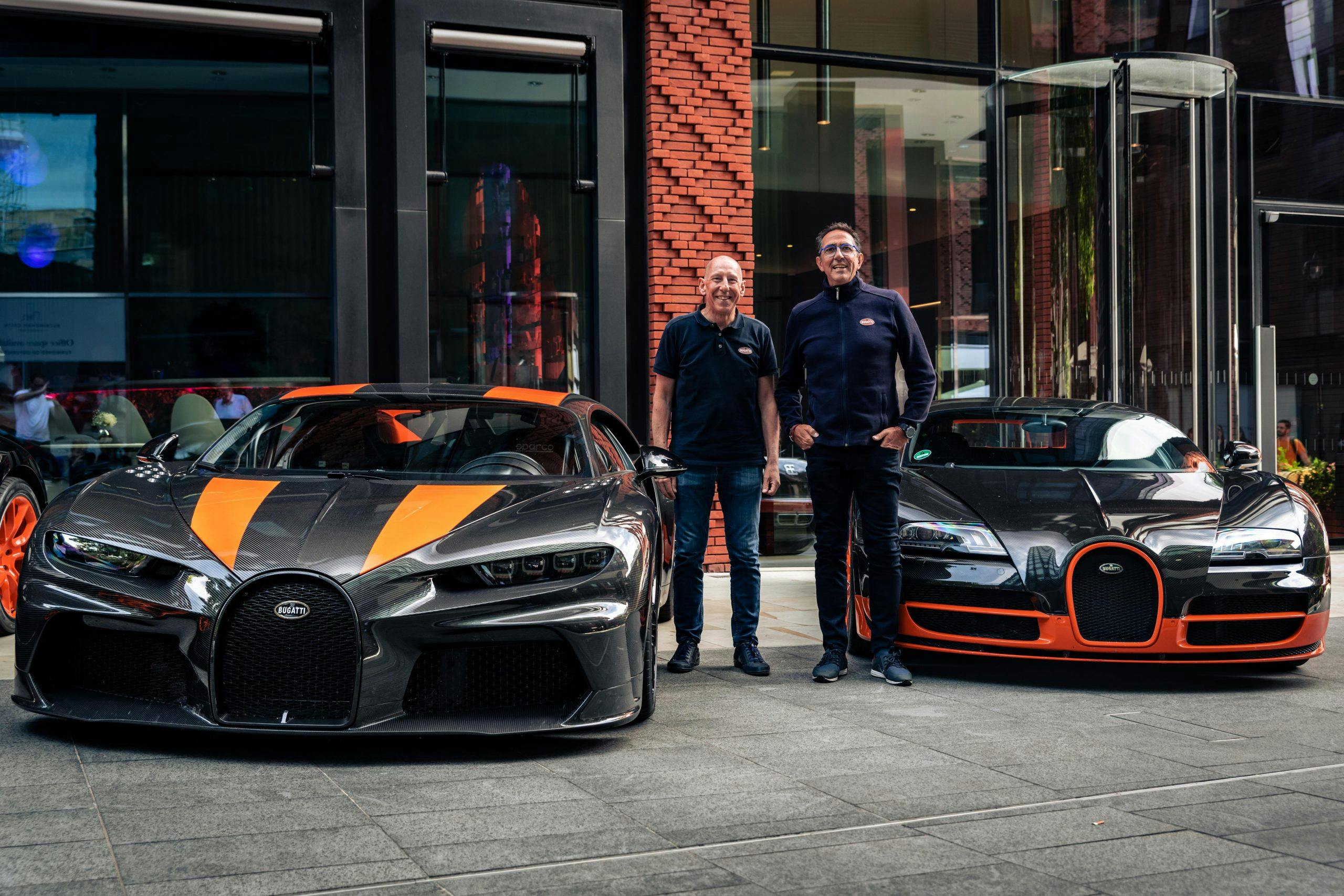Media | Articles
Hands off at 250 mph—the life of a Bugatti test driver
Andy Wallace and Pierre-Henri Raphanel are Bugatti’s power couple. Their relationship goes back almost 40 years, to when they were rivals in Formula Three in the 1980s before sharing a Toyota at Le Mans in 1993, and they have been paired at the French hypercar manufacturer since 2011.
Both of their names are enshrined in record books, with Raphanel reaching 267.8 mph in a Veyron Super Sport in 2010 and Wallace taking the Chiron to 304.8 mph in 2019.
Sat side-by-side in a central London restaurant, their record-breaking cars parked outside, it is Raphanel who has the pace when it comes to conversation, rattling through anecdotes gears in a sequential ‘box. Wallace is no less enthusiastic about his role in developing Bugatti cars and demonstrating their capabilities to press and customers, but his delivery is a little more measured, even as he describes the kind of driving experiences few of us could imagine.
“When we were doing the record run the car was so stable up to 250 mph that you could take your hands off the wheel,” he explains. “But above 280 mph we discovered that wheels were spinning so fast that they had a gyroscopic effect that overcame the suspension geometry, as if you had no caster angle and therefore no self-centering. If you needed to make a correction the car would just keep going in that direction, so you’d have to keep correcting the corrections.”
Raphanel, who has worked for Bugatti for 17 years, and done more than 10,000 demonstration drives in 23 countries, chimes in to describe a somewhat extreme way of showcasing the Chiron’s incredible performance and stability—a full-bore standing start without touching the steering, followed by hands-free hard braking from staggering speeds. It’s part of the Frenchman’s portfolio that helps steer the balance of power in his favor when driving with potential customers.
Marketplace
Buy and sell classics with confidence
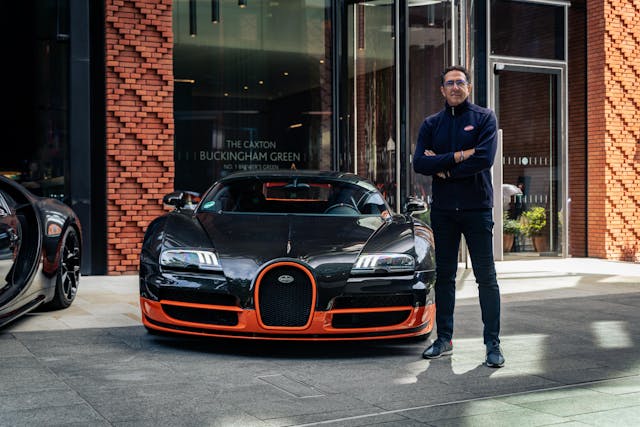
“You have people coming in the car who are very powerful in their lives, people who are used to steering and giving orders, and you have to make a process to get the lead in the car, to get the power,” he says. “Basically, they have to understand that they will not be faster than you in the next half an hour. If you succeed in that then you win and then the people will just start gently because they are impressed by what you can do in the car, and then my job is to help them rise and experience the car’s full power.”
“I always think it doesn’t matter how much experience you have as a driver,” interjects Wallace. “I don’t think you ever drive a car on a journey and learn nothing. You’re constantly learning, and it’s nice to use the experience that we’ve got in a very useful way.”
Having been deeply involved in the development of the world’s fastest production cars, the duo’s duties are now more focused on being brand ambassadors, driving at events such as the Goodwood Festival of Speed and working directly with customers and the media. However, Wallace was very hands-on with a recent project, albeit on a smaller scale than he’s used to– the Baby Bugatti II, built by the Little Car Company in the U.K.
“If you’re professional driver, your job is to do what is asked of you or whatever the target is, and you always put the same amount of effort into it,” he says. Wallace’s input was mainly on the suspension setup and tires and he came away impressed. “It’s the same philosophy as our normal cars: you use the best quality materials available and don’t try and make something a little bit cheaper and cut corners. What I really like is the way that they’ve used what was in the original car and repurposed each thing. It’s all there and it just looks beautiful. They’ve really done a great job.”

The Baby II is the first electric Bugatti, but of course it won’t be the last and, although Wallace and Raphanel may not be too closely involved in day-to-day developments, they’re confident that adding electricity to Bugatti will only enhance the experience.
“We’ve got nothing to worry about,” say Wallace. “I think there’s a lot of horror stories about oh, we’re going lose this, we’re going to lose that, we’re going to lose the other. Actually, we will lose some things, but we’ll gain a lot. We’ll gain a lot in drivability and control of power. I’ve driven quite a few high performance, purely electric cars and there are there are a lot of things that come to you that you haven’t realized that you missed.
“Just as a small example, when we were driving turbocharged Group C cars back in the day, they were monstrously powerful with a lot of downforce, but the throttle response was terrible, but we didn’t realize it was terrible because we didn’t have anything to judge against. Then we drove together at Toyota and this was when Group C went to Formula 1 engines with 3.5-liter V-10s. The throttle response was razor sharp. The same thing will happen with electrification. If you drive an electric hypercar now it will surprise you just how unbelievably controllable it is, even if the numbers are crazy. And it’s not just controllable from the pedal, it’s also the way that each wheel is controlling the power delivery. It can get to a point where a wheel loses grip, but you can reduce it and put it back again in a split second and you won’t even realize it had been limited for that moment. So that’s all coming.”
New technology will bring new driving challenges say Wallace and Raphanel and, with the brand’s hypercars already pushing the boundaries not just of performance but language, we will need a new way of talking about Bugatti.
“The words that we use today, like super fast, super powerful, super easy, we already use for other cars,” grins Raphanel. “We need a new dictionary with only words for Bugatti.”

